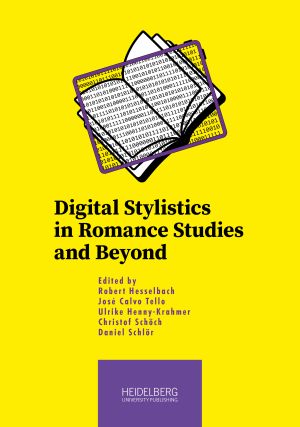
How to Cite
License

This work is licensed under a Creative Commons Attribution-ShareAlike 4.0 International License.
Identifiers
Published
Digital Stylistics in Romance Studies and Beyond
Digital Stylistics is an area of research at the intersection of Literary Studies, Linguistics, Digital Humanities, and Computational Literary Studies. It is concerned with the computational and statistical analysis of literary style and of style in language use. This volume brings together research in Digital Stylistics from Romance Studies and beyond, contributing to new methods and applications in different language contexts and literatures. All the research results are based on the empirical, computational analysis of literary corpora chosen to analyze major genres or subgenres of poetry, drama, and prose from the nineteenth to the twenty-first century.





